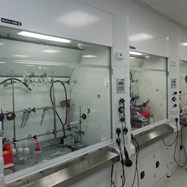Higher Education and Research white paper and Bill
16 May 2016
Update (23 May): Ahead of the Queen's Speech debate on education and skills we produced a briefing on the Higher Education and Research Bill.
- Legislative protection for the dual support system is welcome but the Government should be careful about making any substantial changes to the successful research and innovation system. For example, how the principle of ‘reasonable balance’ in funding for the Research Councils and Research England is determined will be critical.
- We estimate there is currently a funding shortfall of over £72.5 million a year for teaching high-cost subjects like science and engineering at Russell Group universities in England alone. In this context, it is important that tuition fees rise with inflation so that students continue to receive a world-class learning experience. This year, £9,000 tuition fees will be worth only £8,546 in 2012 terms and our universities already have to do more with less.
- Russell Group universities deliver outstanding research hand in hand with excellent teaching – this is central to the student experience they provide. It is important the Government enhances the UK’s reputation for excellent teaching by ensuring regulation is risk-based and proportionate.
Commenting on the Government’s higher education white paper on 16 May, Success as a Knowledge Economy: Teaching Excellence, Social Mobility and Student Choice, Dr Wendy Piatt, Director General of the Russell Group, said:
“We share the Government’s desire to strengthen the UK’s world-class higher education system. Russell Group universities deliver outstanding research hand in hand with excellent teaching – this is central to the student experience they provide.
“We support the Government’s commitment to maintain and build on the world-class research and innovation taking place at our leading universities. Not only are we world-leaders in research but we also punch well above our weight so the Government should be careful about making any substantial changes to a successful system. Allowing the Research Councils and Innovate UK to retain their identities and budgets is a step in the right direction but we urge them to proceed with caution.
On teaching excellence
“A huge amount of time, effort and resources have been devoted to improving the education and student experience at our universities. And this is reflected in feedback from employers and our students who year on year express above average levels of overall satisfaction with the quality of their course.
“There is always room for improvement but this is best delivered through a risk-based approach to regulation that protects the institutional autonomy, diversity and competitiveness that our system thrives on. The new Teaching Excellence Framework must add value and assess teaching fairly and accurately without adding to the regulatory burden. We are encouraged to see that the Government have realised the difficulties of introducing a complicated assessment system so quickly. The decision to develop and pilot this new system over a longer period of time is good news.”
On UK Research & Innovation (UKRI)
“The Government’s added legislative protection for the dual support system is extremely welcome. Taking time to establish UKRI in shadow form before full implementation should help ensure a smooth transition, but the scale of change being proposed to the UK’s research funding architecture should not be underestimated.
“We welcome the appointment of John Kingman as interim chair of UKRI. John is a strong advocate of world-class research and innovation in our universities and understands the importance of protecting the many strengths in the current system.”
On transparency and access
“We want talented students from all backgrounds to know that with the right grades in the right subjects a place at our universities is well within their reach. Real progress has already been made with increasing numbers of disadvantaged and BME students coming through our doors, but we are far from complacent. Next year we will spend over £243 million on outreach activities and financial support aimed at the most disadvantaged students in England alone. Universities publish a range of data through UCAS, the Higher Education Statistics Agency and on their own websites to ensure the admissions process is as clear and easy-to-understand as possible.”
On new providers
“We are not opposed to new providers so long as the growth does not increase pressure on the limited funding available from Government. The probationary period for new entrants to the market must also be robust and we urge the Government to consider a longer period of enhanced scrutiny and peer review to help maintain the UK’s reputation and high standards.”
Notes to Editors
- The Russell Group responded in detail to the Government’s consultation on the higher education green paper and Nurse Review. Read this response here.
- The 2015 National Student Survey showed:
- 88% of students are satisfied with the quality of their university course across Russell Group universities, compared with 85% of students at other universities.
- 89% of students at Russell Group universities are satisfied with the teaching on their course, compared to a sector-wide average of 87%.
- 90% of students at Russell Group universities found their course intellectually stimulating.
- According to the QS World University Rankings 2015, 11 of the top 50 universities in the world, as ranked by employers, are Russell Group universities.
- Our 2014 publication and film, A Passion for Learning, set out the many ways Russell Group universities are working hard to provide excellent teaching and support for student
- The Russell Group Opening Doors report and accompanying films examine the root causes of under-representation of students from disadvantaged backgrounds, and gives examples of what Russell Group universities are doing to help tackle the problem. More and more disadvantaged students are studying at Russell Group universities:
- Students eligible for free school meals (FSM) are more likely than ever to attend highly-selective institutions. In 2014 FSM-eligible pupils were 39% more likely to enter high tariff institutions than they were in 2011.
- More than a third of our students receive a bursary or scholarship from their university.
- In 2016-17, the 20 Russell Group universities in England alone will be investing £243 million in scholarships, fee waivers, bursaries and outreach activities aimed at the most disadvantaged – with additional investments being made across the rest of the UK.
- Our guide Informed Choices, first published in 2011, is put together in collaboration with the Heads of Admission at the 24 Russell Group universities and includes advice on the best subject combinations for a wide range of university courses as well as advice on the best choices for students if they don't know what they want to study after school and need to keep their options open.
- Our latest report Engines of Growth: the impact of research at Russell Group universities and accompanying film highlight how research from Russell Group universities generates billions of pounds in returns to the UK economy, has an impressive impact on the health and quality of life of the nation and contributes to our rich cultural life and heritage.
-
Hamir Patel
hamir.patel@russellgroup.ac.uk
020 3816 1316
-
Hollie Chandler
Hollie.Chandler@russellgroup.ac.uk
020 3816 1307
 X
X


